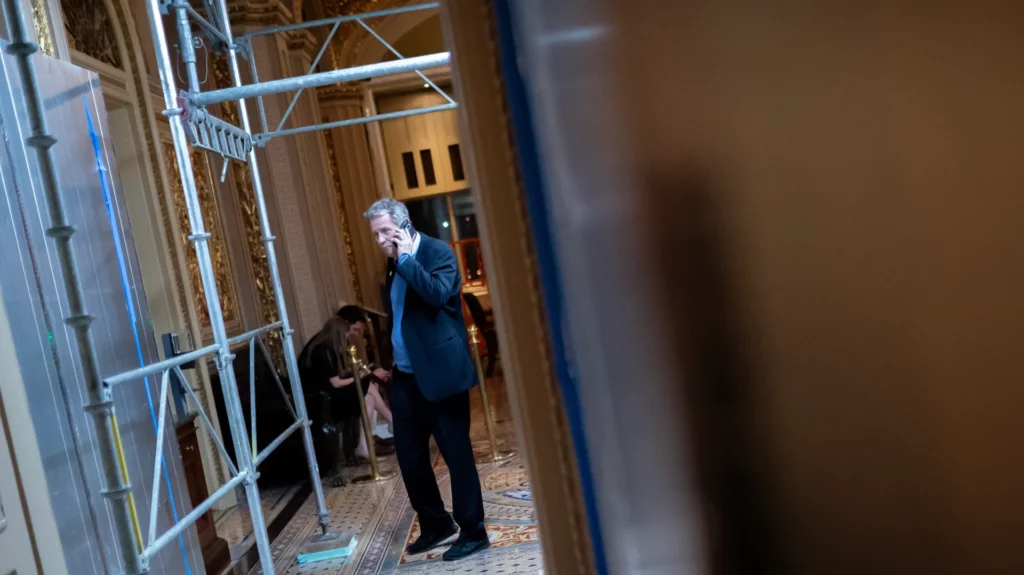Stablecoin Legislation Appealing for Cryptoskeptic Senator Sherrod Brown — Can Tether, USDC, Survive Regulation?

Senate's Sherrod Brown Surprisingly Backs Push for Stablecoin Legislation | Credit: Nathan Howard/Getty Images
Key Takeaways
- Senator Sherrod Brown is one of American politics best known cryptoskeptics.
- Brown’s openness to stablecoin legislation could give the issue a boost.
- Brown’s support is conditional on strong safeguards.
- This move could have an impact on the likes of Tether and USDC.
Senator Sherrod Brown, known for his critical stance on cryptocurrencies, has surprisingly expressed openness to advancing legislation for stablecoins.
As the chairman of the Senate Banking Committee, Brown’s support is pivotal and could significantly increase the chances of passing such legislation, which could be beneficial for the likes of Tether and USDC.
Unexpected Support from Crypto Skeptic Sherrod Brown
During a brief interview at the US Capitol, Brown revealed plans to possibly bundle this stablecoin bill with other measures concerning banking for marijuana businesses and executive compensation clawbacks at failed banks. This strategic combination could facilitate a comprehensive legislative package that addresses various financial issues simultaneously. This will be important for the likes of USDC and Tether.
Navigating Concerns and Potential Impacts
However, Senator Brown has set clear conditions for his support. He wants the stablecoin legislation to meet his stringent standards for consumer protection and robust regulation. He emphasizes the need for strong guardrails to ensure stablecoins, which should be backed by highly liquid assets like US dollars or Treasury Bonds, do not compromise the financial system’s integrity.
Brown’s cautious approach stems from the potential risks stablecoins pose as they bridge crypto with traditional finance. Effective federal regulation could not only safeguard consumers. It could also lend much-needed legitimacy to stablecoins, potentially encouraging broader adoption.
Legislative Pathways and Broader Crypto Regulations
The path to stablecoin legislation has been complex and contentious, highlighted by the division within Congress on how to regulate this emerging asset class.
High-profile lawmakers like Senator Elizabeth Warren have expressed concerns that inadequate regulations could lead to financial instability.
Meanwhile, efforts by House Financial Services Chairman Patrick McHenry and discussions between key legislators and the Biden administration signal ongoing negotiations to find a middle ground that satisfies both crypto advocates and skeptics.
Additionally, the stablecoin bill’s potential inclusion in a larger legislative package indicates a strategic legislative approach. This could possibly be attached to must-pass bills, such as the reauthorization of the Federal Aviation Administration due in May.
The bundled legislation approach, includes bills on pot-banking and executive compensation clawbacks that have already seen bipartisan support in Brown’s committee, reflects a broader intent to leverage must-pass legislation to advance multiple important policies simultaneously.
Brown’s conditional endorsement demonstrates the delicate balance lawmakers must strike between fostering growth and ensuring financial security. As discussions continue and new proposals like Senator Kirsten Gillibrand’s forthcoming stablecoin bill enter the fold, the landscape of cryptocurrency regulation in the US remains dynamic and fraught with both opportunity and challenges.


